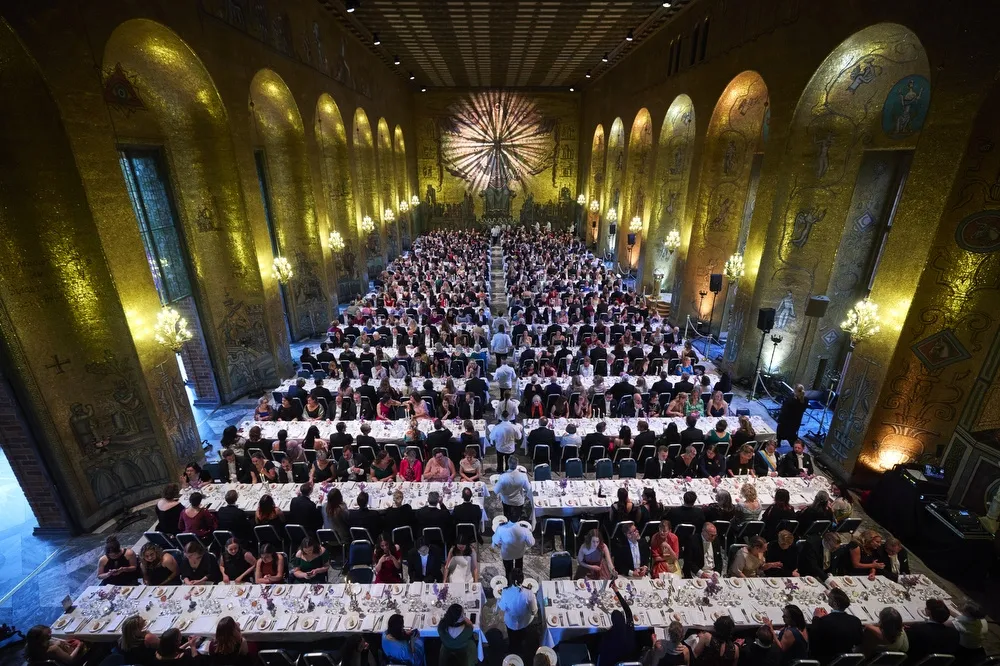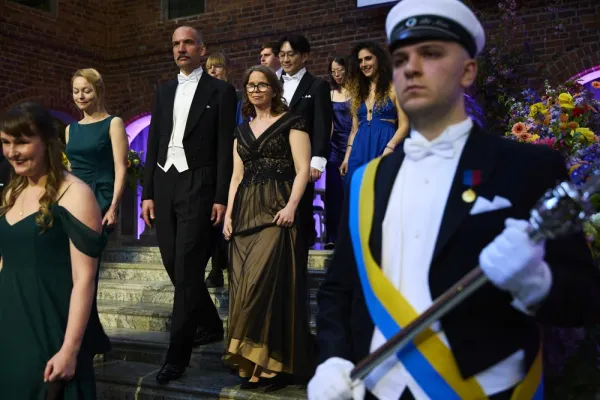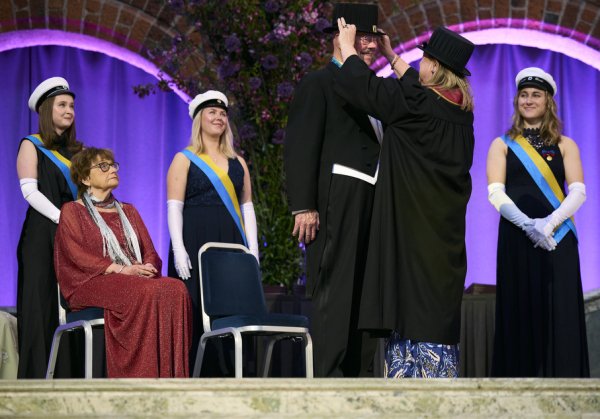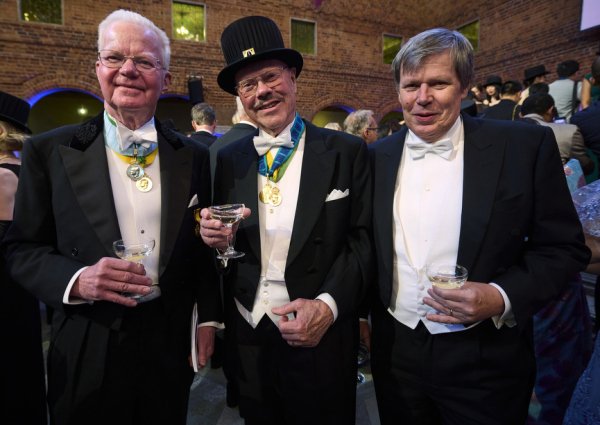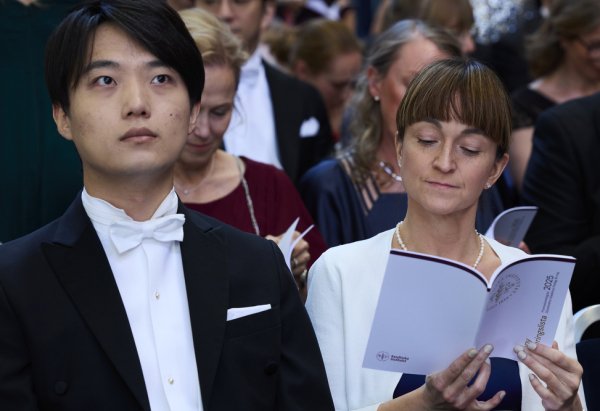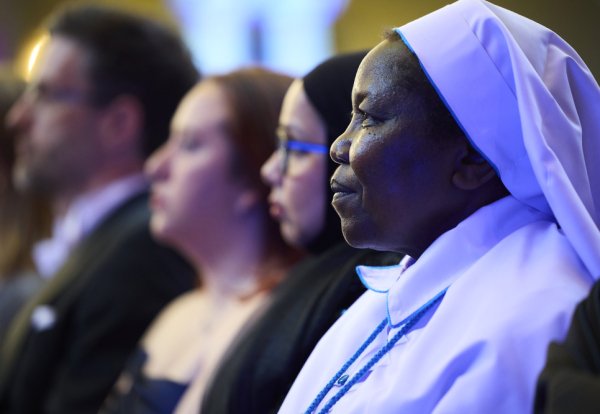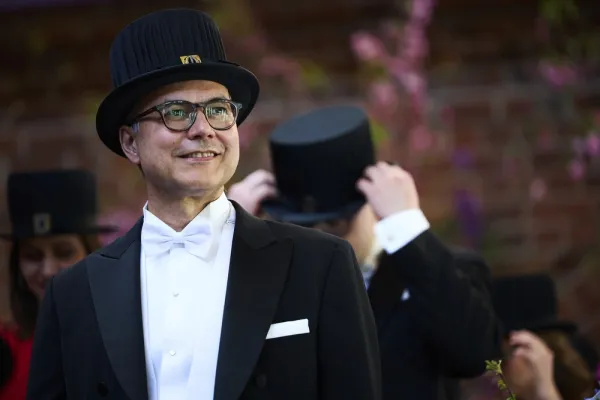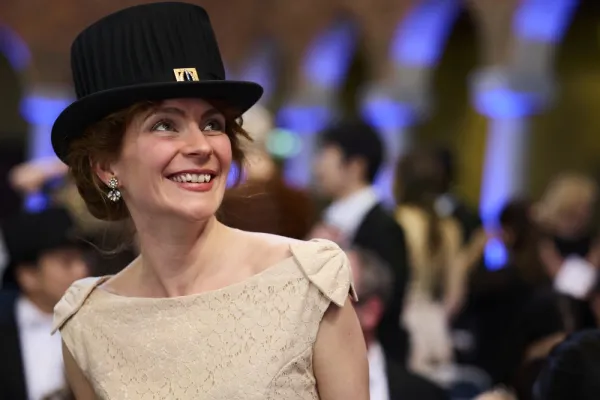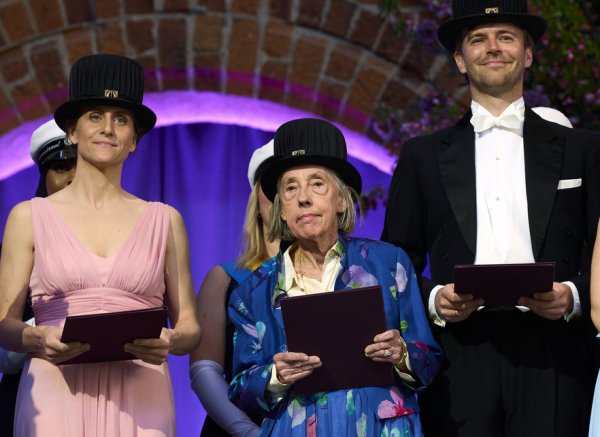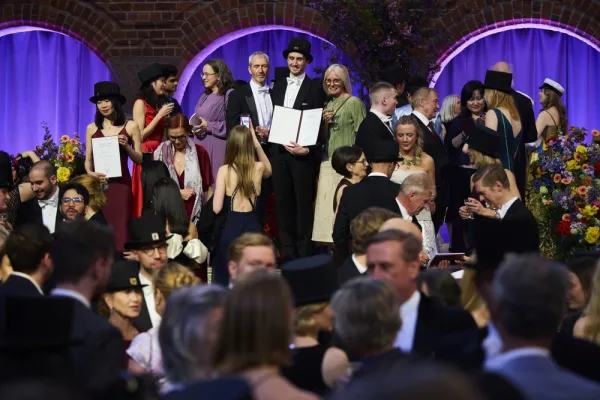At this spring's most important academic ceremony, 143 doctors and two honorary doctors received their hats and diplomas at Stockholm City Hall. Each one has a story to tell of exciting challenges and many years' devotion to their work. One of them is Martina Gustavsson. Raised on a farm in Västergötland, her journey to the City Hall podium involved many miles by motorbike through remote parts of Uganda.
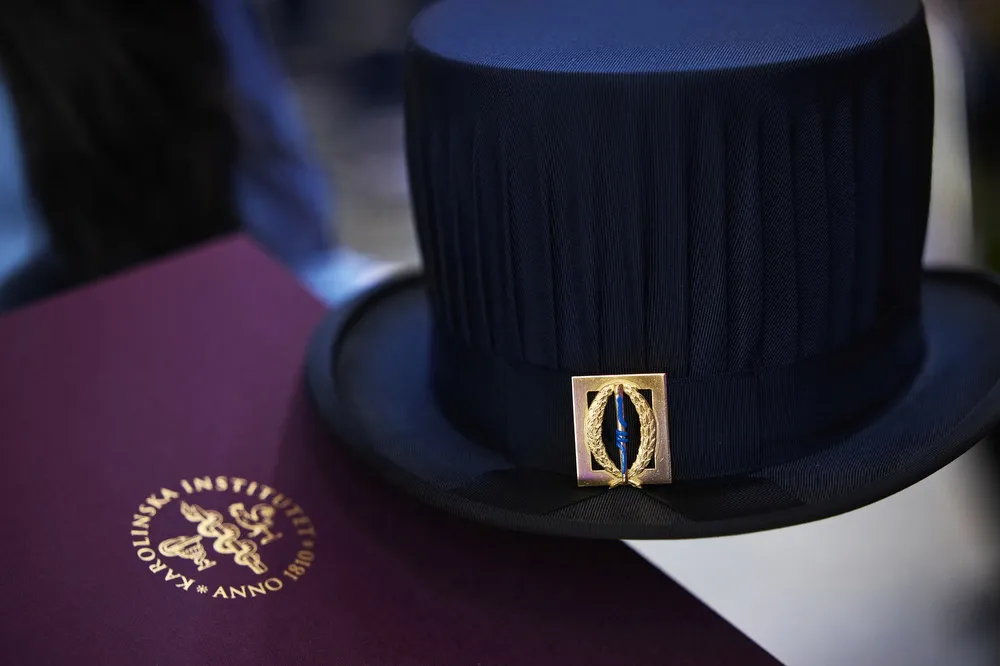
On 16 May, it was time once again for the spring conferment ceremony, at which 143 doctoral graduates received their diplomas and hats.
When all the guests were seated, the formal ceremony began in the flower-bedecked Blue Hall as KI's academic management and the graduands paraded in to the strains of the Karolinska Institutet ceremonial march played on the organ and trumpets.
Marching amongst them was Martina Gustavsson from the global disaster medicine research group, who graduated with a thesis on moral conflicts in health crises from the Department of Global Public Health.
From Västergötland to the world
When Doctor of Medical Sciences Martina Gustavsson stepped up onto the stage to receive her doctor's hat and diploma, it was a big and important milestone on a life journey that has taken her from the safety of a village in Västergötland to some of the world's most vulnerable places.
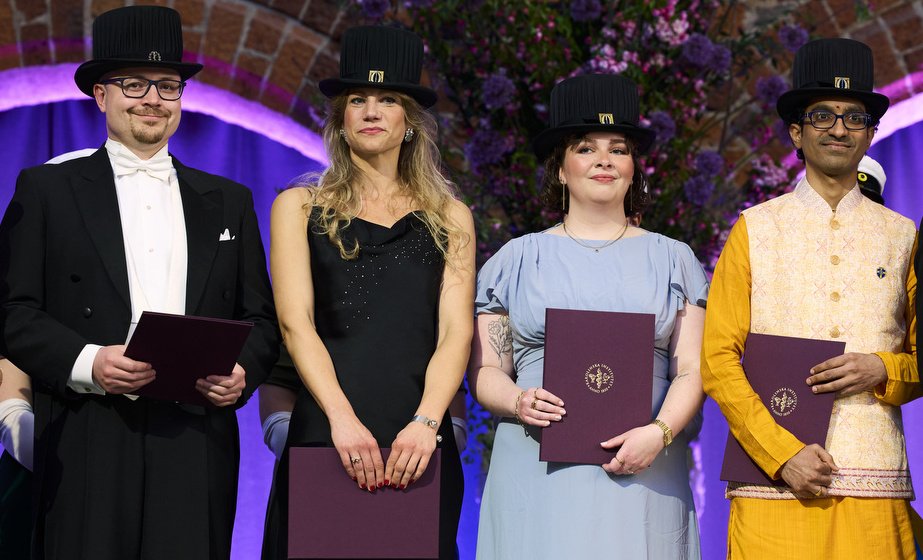
"It felt a bit surreal to stand there on the podium in the Blue Hall with Mum in the audience," she says. "I don't know which of us was the proudest."
Her research in global disaster medicine has grown out of her field experience as a nurse in countries like Ukraine, Haiti and Congo, which has also fed a strong desire to help other people.
"I've found myself in difficult situations as a coordinator where it's been difficult to know how to provide the most effective support to the doctors and nurses when there aren't enough resources to cover the important needs," says Martina Gustavsson, who is currently continuing with her research. "But I've also had to make difficult decisions, like when there's only one ambulance. Which of all the patients should get to go first? It makes you think, in hindsight: did I really do the right thing or could I have acted differently?"
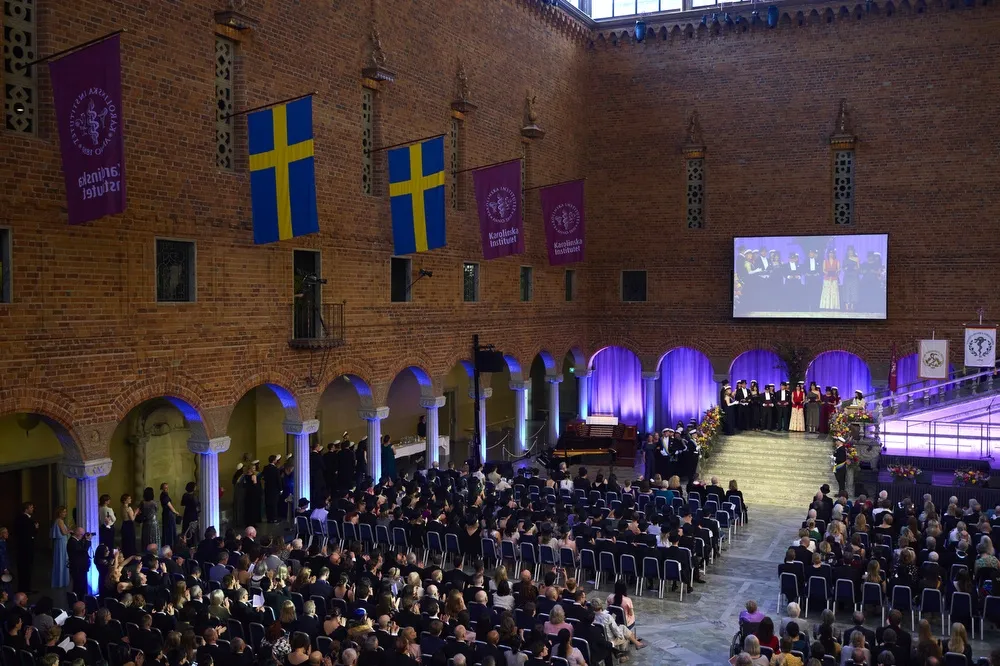
An academic life was not a given for Martina Gustavsson. Raised on a farm outside Götene in Västergötland, she chose the nursing programme at upper secondary school.
Later, while studying as a nurse in Växjö, she had the opportunity to go on an exchange in Uganda. It was an experience that would change her life.
Through Uganda by motorbike
While there, Martina Gustavsson developed an interest in the research field known as global health, and for the past ten years has combined practical work in some of the world's most fragile states with nursing back in Sweden.
She enrolled at Karolinska Institutet to continue her academic career with a Master's in global public health.
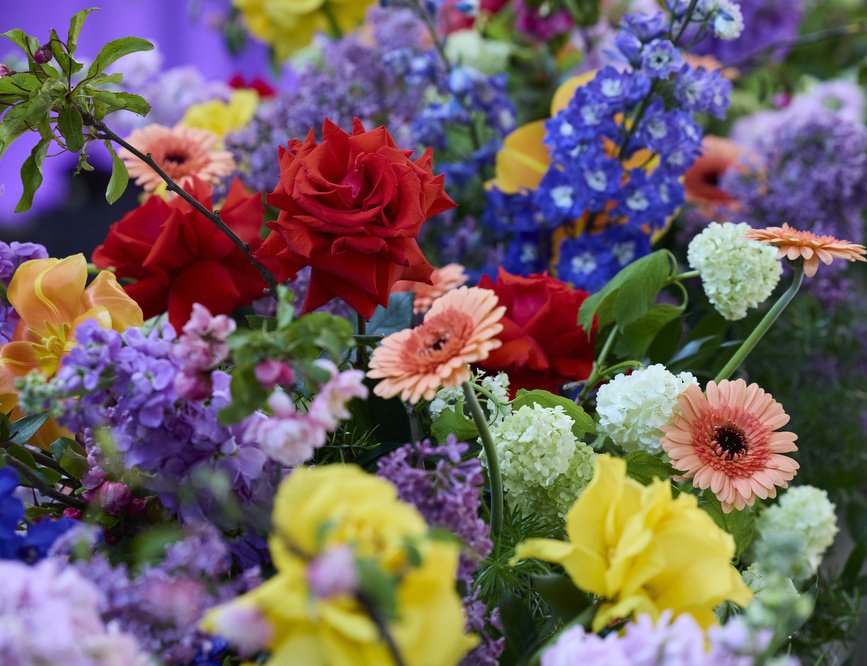
During this time, she did a Master's project in northern Uganda, where she worked with a rehab centre for former child soldiers, travelling from village to village on a motorbike to interview girls and women who had lived with the rebel group The Lord's Resistance Army.
The project required courage and tenacity - and laid the foundation for her continuing research field.
"Martina's always done her own thing and I've cheered her along the way," says her mother, Christina Gustafsson, who attended the ceremony. "When she told me about her Master's dissertation, my first reaction was Oh God! But then I encouraged her and said go, these children need to be heard."
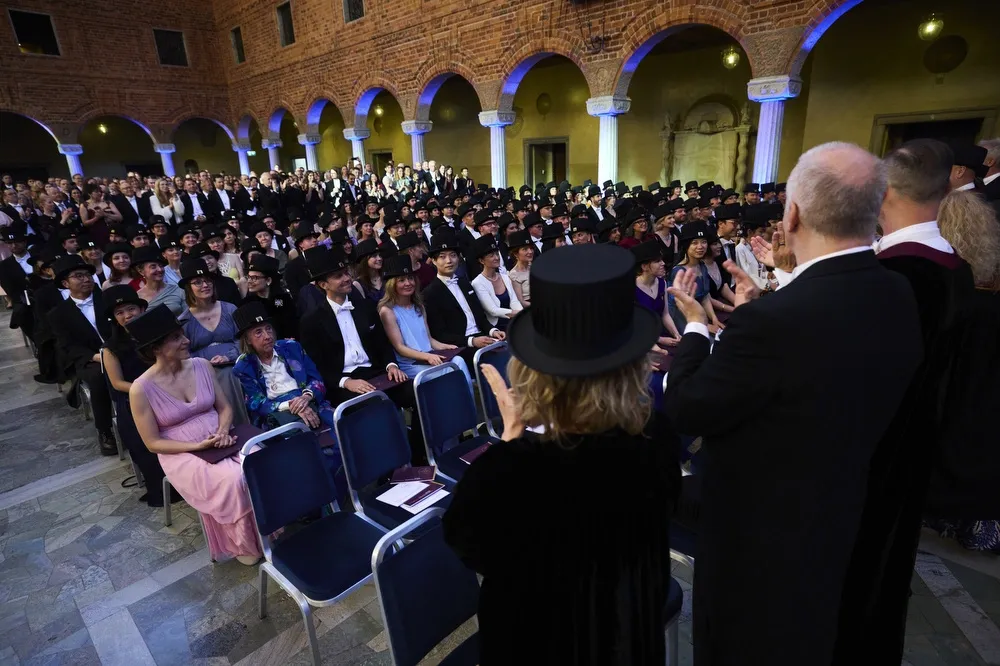
After working on projects with Doctors without Boarders in Sierra Leone, South Sudan and pandemic-afflicted Ethiopia among other places, Martina Gustavsson joined a research project on ethical challenges for careworkers during disasters. It marked the start of her doctoral journey at KI.
"It was also in the middle of the pandemic," she recalls. "Much was online, and it was an intense time. But it was also incredibly instructive to be able to combine theory and practice."
She missed last autumn's conferment ceremony due to an emergency mission in Congo, where she trained personnel in contingency planning in connection with an outbreak of the deadly Marburg virus in nearby Rwanda.
Martina Gustavsson's route to the podium this May had, in other words, taken a few detours and been full of valuable experiences with vulnerable people.
Academic freedom under pressure
Once the graduands and the KI management had settled into their seats in the florally decorated Blue Hall, KI President Annika Östman Wernersson began her formal address by congratulating the new doctors.
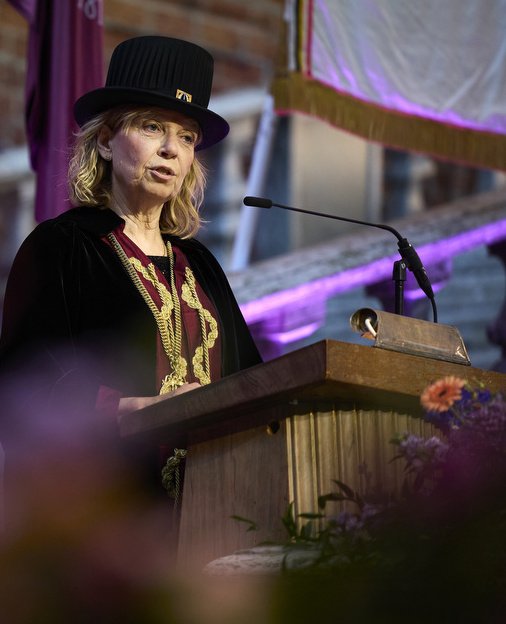
After stressing the nature of such ceremonies as important and joyful occasions, she adopted a more serious tone, raising the concept of academic freedom as one of the university's most fundamental values - a principle that in the past has been defended against religious forces but that today is under threat from political interference.
Following the conferment of honorary doctors Leif Lundblad and Margareta Persson (see separate article) it was time for the new doctors to take the stand.
And when conferrer Robert Harris, academic vice president for doctoral education somewhat unexpectedly delivered his speech dressed as an elephant, the audience could not hold back the laughter.
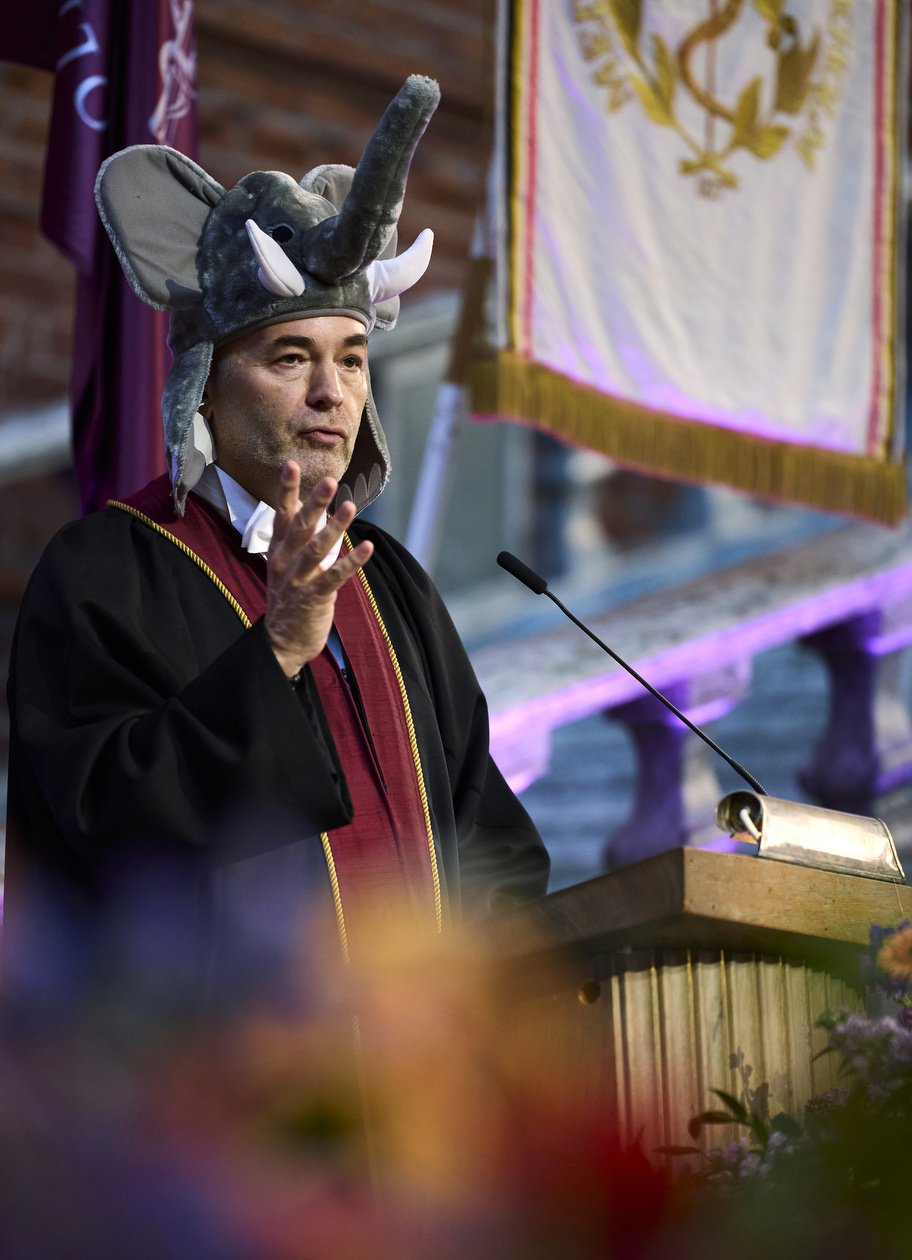
He encouraged the graduands to think like elephants - not only as regards their good memories but also their social behaviour, with its focus on community and lasting relationships.
"I humbly suggest that you do not forget anything, and that all these experiences, the good, the bad and the ugly, have shaped you into becoming the exceptionally talented, resilient and successful individuals that I see before me," he said, ending his speech with the words: "Let's get this party started".
Doctors with courage and curiosity
This was the signal for the graduands to step up onto the podium in groups of seven to receive their hats and diplomas, each honoured with a cannon salute.
"I'm not really used to all this pomp and circumstance, but it was really magnificent, especially the organ and trumpets as we paraded out," says Martina Gustavsson, her mother Christina nodding in agreement.
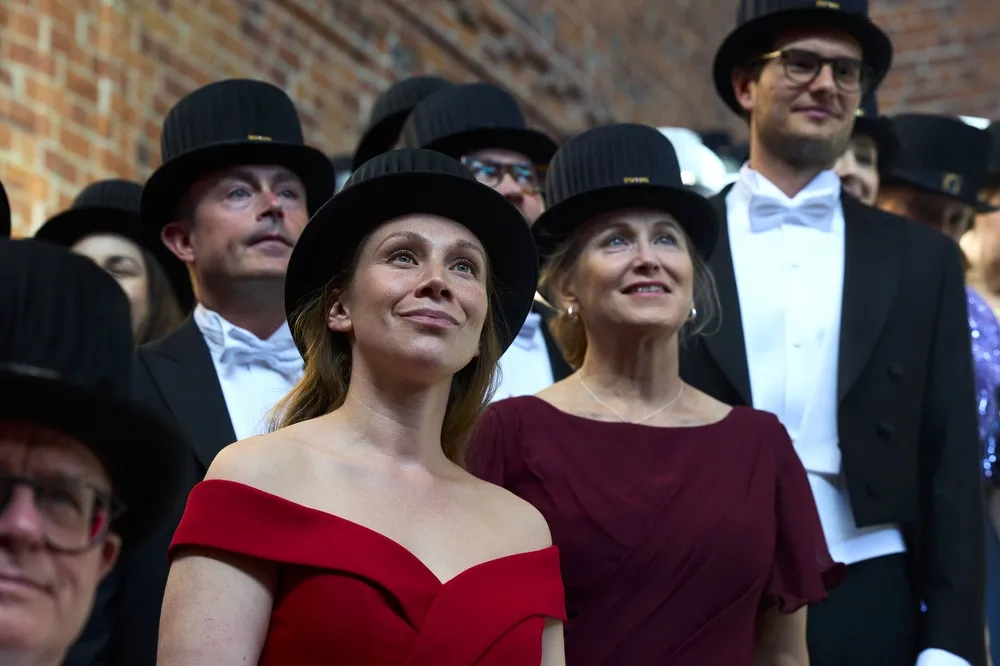
The evening continued with a dinner and music in the Golden Hall and ended with dancing.
Each of the 143 new doctors has been on an exciting, important and difficult journey. Martina Gustavsson´s is one example of how academic research can grow out of real-life experiences - and how with courage, curiosity and tenacity a person can go far.
Text: Miriam Mosesson
Translation: Neil Betteridge
